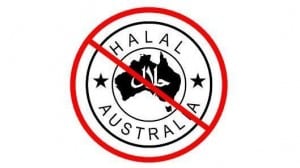Exemptions that allow some Australian abattoirs to conduct ritual slaughters without prior stunning will continue, after the country’s agriculture ministers last week failed to resolve discussions on calls for their withdrawal.
Federal, State and Territory agriculture ministers from Australia and New Zealand met in Melbourne last Friday to discuss a range of issues at the 21st meeting of the Primary Industries Ministerial Council.
On the agenda was calls by animal welfare groups for exemptions that allow 12 Australian abattoirs to slaughter animals without prior stunning on religious and cultural grounds.
In a communique released after its meeting, the council said ministers had reviewed the results of a two-year consultation process with stakeholders and had considered the science involved and the views of religious groups.
However the ministers did not reach an agreement on the issue, and the council said discussions will continue with the religious groups “in order to settle an applicable risk management framework”.
It is understood that up to 250,000 animals are killed without prior stunning in Australia every year under the religious slaughter exemptions.
The RSPCA said stunning was accepted by the Islamic community and Jewish community and no reason existed for un-stunned slaughter to continue.
It accused agriculture ministers of cowardice in not reaching a decision.
“These ministers have at hand the overwhelming evidence that cutting the throats of conscious animals is cruel and causes significant pain and suffering,” RSPCA Australia Scientific Officer, Melina Tensen said.
The Executive Council of Australian Jewry argues that slaughtering methods authorised by halacha (shechita) have been an integral part of Jewish life for 3000 years, and that shechita has been accepted in civilised societies for centuries as a humane way of slaughtering livestock for consumption.
Its holds that pre-slaughter stunning of animals renders such animals unfit for Kosher consumption, which would make it impossible to produce Kosher meat and would threaten the viability of the Jewish community.
Attempts at the banning of shecita were historically associated with attempts to delegitimise Jewish religious practices and had long been a manifestation of anti-semitism, the council’s policy states.
Jewish communities were committed to cooperating with animal welfare officers to ensure that Kosher slaughter met the highest industry standards.
Halal slaughter expert Dr Mohammed Lotfi from Australian Halal Food Services told Beef Central earlier this year that the focal point of the Islamic slaughtering process was on the humane treatment of animals.
Dr Lotfi said the use of stunning as an animal welfare measure prior to slaughter was an acceptable procedure under Halal slaughtering techniques. Halal is Arabic for “lawful” or “permissible” and describes what is fit for Muslims to eat, and is based on an interpretation of the Quran, the Muslim scripture.
Under the Australian Government Muslim Slaughter program system, non-penetrating Percussive stunning was used in the Halal slaughter of cattle for all export Muslim markets.
The use of non-penetrating Percussive stunning complied with the Halal requirement that the animal must be alive at the time of slaughter. For this to be determined the animal’s heart must be beating when it is slaughtered.
Dr Lotfi said that under Islamic slaughtering law:
- Any form of ill-treatment of animals is prohibited;
- Animals should be well-fed and watered;
- Only healthy animals can be slaughtered;
- Animals should not be slaughtered in front of one another;
- Pregnant animals should not be slaughtered;
- Calves should not be slaughtered in front of their mothers and vice versa;
- Only very sharp knives should be used for the slaughtering;
- Slaughtering should be done in one cut and as fast as possible.
Ministers meeting last Friday were also unable to reach a resolution on discussions surrounding the appropriate feeding of bobby calves on the way to slaughter.
“800,000 dairy calves are trucked to slaughter every year and it is inexcusable that we still don’t have a legally enforceable standard to help ensure their welfare,” RSPCA scientific officer Melina Tensen said.



